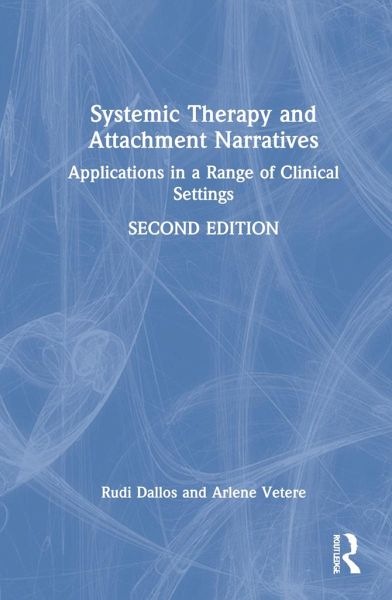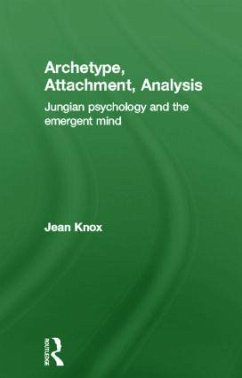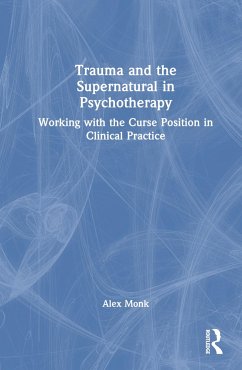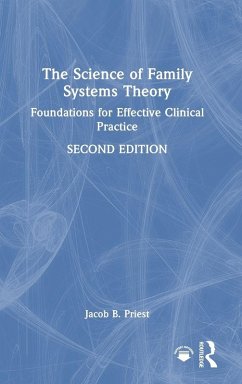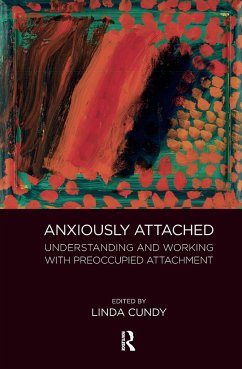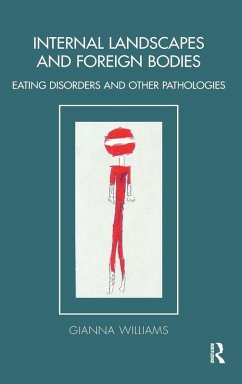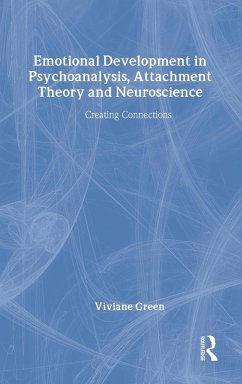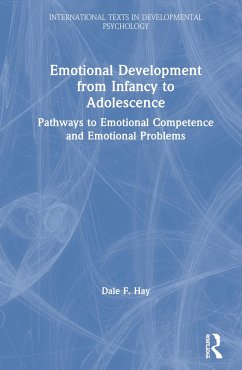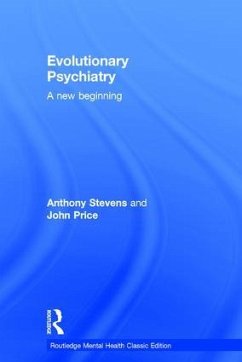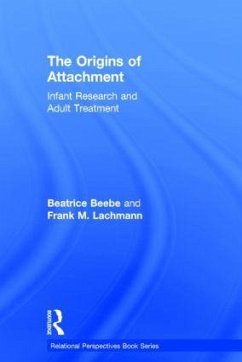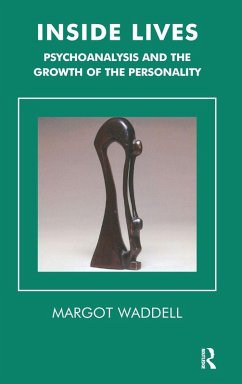Systemic Therapy and Attachment Narratives
Applications in a Range of Clinical Settings
Versandkostenfrei!
Versandfertig in 1-2 Wochen
Weitere Ausgaben:

PAYBACK Punkte
81 °P sammeln!





Systemic Therapy and Attachment Narrative explores how attachment-based ideas can be used in clinical practice by offering a practical and sophisticated exposition of clinical approaches.
Rudi Dallos, PhD is the Emeritus Professor of Clinical Psychology, University of Plymouth. He has worked as a family therapist for 40 years in a variety of settings, including with children, adolescents, eating disorders and most recently families where a child has a diagnosis of autism. He has published a range of papers and books on Family Therapy as well as Attachment Narrative Therapy and his research and practice has led to the development of the ANT model. Arlene Vetere, PhD is Professor Emeritus of Family Therapy and Systemic Practice at VID Specialized University, Oslo, Norway. She is a clinical psychologist and systemic psychotherapist, supervisor and trainer, registered in the UK, where she lives and practises.
Produktdetails
- Verlag: Routledge
- 2. Auflage
- Seitenzahl: 234
- Erscheinungstermin: 29. Dezember 2021
- Englisch
- Abmessung: 240mm x 161mm x 17mm
- Gewicht: 520g
- ISBN-13: 9780367530280
- ISBN-10: 0367530287
- Artikelnr.: 62273492
Herstellerkennzeichnung
Libri GmbH
Europaallee 1
36244 Bad Hersfeld
gpsr@libri.de
'In a world under threat from pandemic, climate breakdown, and post-truth politics we need, more than ever, ideas that are grounded in reality and creativity. It is a strange paradox, therefore, that, attachment - that most thoroughly researched model of human relationships - has, from Bowlby onwards, been relatively marginalised both within psychoanalysis and family therapy. The now substantial body of work of Dallos and Vetere stands as an essential exception to this trend, and here, in the second and revised edition of their book, they further develop their blend of the dynamic and culturally sensitive attachment model of Crittenden together with the best of narrative and systemic theory and practice. Buy the book - you will be in safe
Mehr anzeigen
hands.'
David Pocock, Systemic Family Therapist and Psychoanalytic Psychotherapist
'Arlene Vetere and Rudi Dallos are widely recognised as leading writers, teachers and practitioners in the field of family and systemic therapeutic practice. This book demonstrates both why and how. Their "Attachment Narrative Model" takes the foundational ideas of John Bowlby's work on Attachment Theory and John Byng-Hall's 'Attachment influenced' application to family stories and scripts. They describe these ideas but enlarge the frame of their understanding and application yet further. The many human dilemmas and their emotional-relationship contexts in are examined with case examples of embeddedness. This is an essential work across the human services professions for all those wishing both to grasp and apply this fresh, dynamic way of activating relational change. It is accessible to both trainees and experienced partitioners alike and up to date with the radically changing world in which we find ourselves.'
John Hills, Life Member of the UK Association for Family Therapy and Systemic Practice
David Pocock, Systemic Family Therapist and Psychoanalytic Psychotherapist
'Arlene Vetere and Rudi Dallos are widely recognised as leading writers, teachers and practitioners in the field of family and systemic therapeutic practice. This book demonstrates both why and how. Their "Attachment Narrative Model" takes the foundational ideas of John Bowlby's work on Attachment Theory and John Byng-Hall's 'Attachment influenced' application to family stories and scripts. They describe these ideas but enlarge the frame of their understanding and application yet further. The many human dilemmas and their emotional-relationship contexts in are examined with case examples of embeddedness. This is an essential work across the human services professions for all those wishing both to grasp and apply this fresh, dynamic way of activating relational change. It is accessible to both trainees and experienced partitioners alike and up to date with the radically changing world in which we find ourselves.'
John Hills, Life Member of the UK Association for Family Therapy and Systemic Practice
Schließen
Für dieses Produkt wurde noch keine Bewertung abgegeben. Wir würden uns sehr freuen, wenn du die erste Bewertung schreibst!
Eine Bewertung schreiben
Eine Bewertung schreiben
Andere Kunden interessierten sich für



